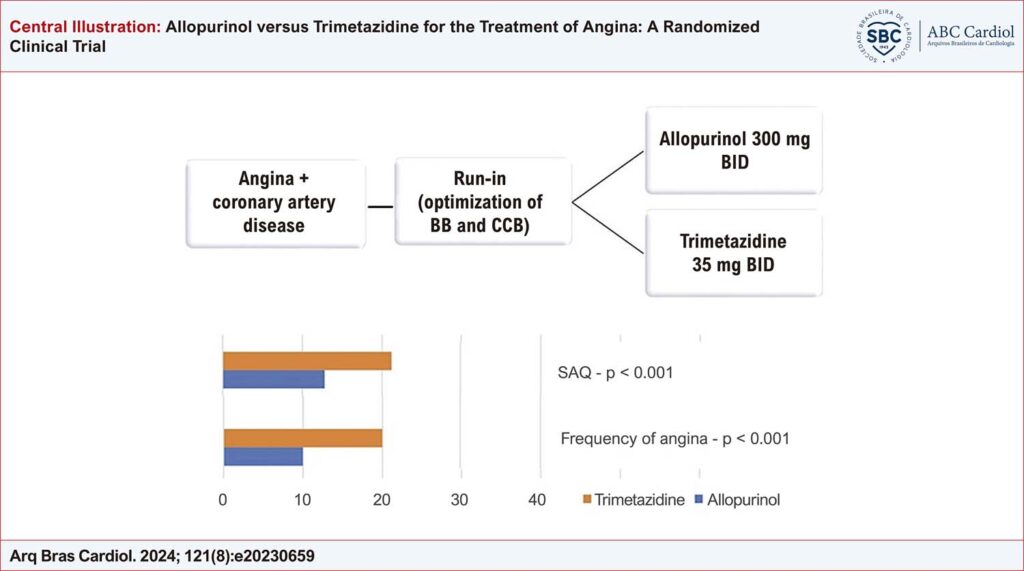Arq. Bras. Cardiol. 2024; 121(8): e20230659
Allopurinol versus Trimetazidine for the Treatment of Angina: A Randomized Clinical Trial
This Original Article is referred by the Short Editorial "Allopurinol versus Trimetazidine as Antianginal: A Randomized Clinical Trial".
Abstract
Background
Recently, it was demonstrated that allopurinol, a xanthine oxidase inhibitor, has cardiovascular and anti-ischaemic properties and may be a metabolic antianginal agent option.Objective: The objective of this study was to evaluate the antianginal effect of allopurinol as a third drug for patients with stable coronary artery disease (CAD).
Methods
This was a randomized clinical trial between 2018 and 2020 including patients with CAD who maintained angina despite initial optimization with beta-blockers and calcium channel blockers. The individuals were randomized 1:1 to 300 mg of allopurinol twice daily or 35 mg of trimetazidine twice daily. The main outcome was the difference in the angina frequency domain of the Seattle Angina Questionnaire (SAQ-AF). A probability (p) value < 0.05 was considered statistically significant.
Results
A hundred and eight patients were included in the randomization phase, with 54 (50%) in the allopurinol group and 54 (50%) in the trimetazidine group. Six (5.6%) individuals, 3 from each group, were lost to follow-up for the primary outcome. In the allopurinol and trimetazidine groups, the median SAQ-AF scores were 50 (30.0 to 70.0) and 50 (21.3 to 78.3), respectively. In both groups, the SAQ-AF score improved, but the median of the difference compared to baseline was lower in the allopurinol group (10 [0 to 30] versus 20 [10 to 40]; p < 0.001), as was the mean of the difference in the total SAQ score (12.8 ± 17.8 versus 21.2 ± 15.9; p = 0.014).
Conclusion
Both allopurinol and trimetazidine improved the control of angina symptoms; however, trimetazidine presented a greater gain compared to baseline. Brazilian Registry of Clinical Trials – Registration Number RBR-5kh98y
1,258

